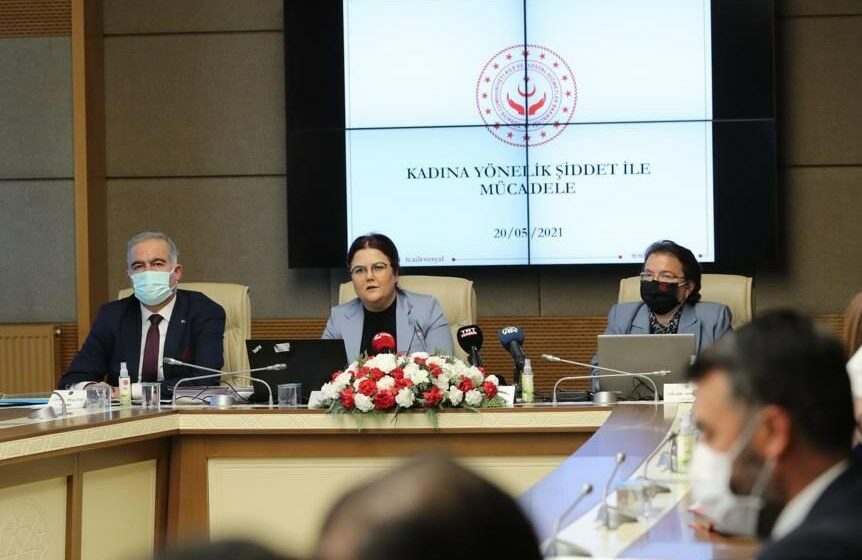Five percent of Turkish women were exposed to sexual violence in the past year, the Stockholm Center for Freedom reported citing data shared by Minister of Family and Social Services Derya Yanık on Thursday at the Turkish parliament.
Yanık was speaking to members of a committee investigating violence against women. The ministry report said only 11 percent of victims report incidents to the police.
Yanık said they had established violence prevention and monitoring centers (ŞÖNIM), to combat gender-based violence. She added that the ministry had also put KADES, a mobile app developed by the police, into effect. Thousands of women have reported being subjected to violence since it was launched in 2018.
Despite these monitoring systems, activists criticize the Turkish government for not providing women with adequate protection.
Laws exist in Turkey to protect women, although they frequently are not implemented. There is a legal framework in place under which when found guilty, perpetrators of sexual harassment can be jailed from three months to two years. After a woman makes a complaint, the authorities are compelled to launch an investigation.
However, courts do not impose these sentences. According to the Justice Ministry, there were 15,842 sexual harassment cases in 2019. In 17 percent of the cases, the accused was found not guilty, in 39.7 percent the perpetrator was sentenced and in almost 25 percent of cases, the sentence was suspended.
Speaking to Deutsche Welle Turkish service (DW), activist and lawyer Selin Nakipoğlu said such suspended sentences give the impression to both victims and perpetrators that sexual harassment can continue without any consequences.
Nakipoğlu added that many women and children were traumatized by the way investigations into harassment were carried out. “Investigations go on for a very long time, and the victims have the impression that nothing is happening,” she said. “Authorities should not be allowed to convey such an impression.”
In a controversial move Turkey withdrew from the Istanbul Convention, a Council of Europe’s (CoE) binding treaty to prevent and combat violence against women, with a presidential decree issued by President Recep Tayyip Erdoğan on March 20.
The Istanbul Convention had been signed by 45 countries and the European Union as of March 2019 and requires governments to adopt legislation prosecuting perpetrators of domestic violence and similar abuse as well as marital rape and female genital mutilation.
Turkey was the first member state to ratify the CoE convention, which was opened for signature in Istanbul during Turkey’s chairmanship of the organization 10 years ago.
Turkey’s decision to withdraw from the convention was met with criticism from several international leaders.
US President Joe Biden said Turkey’s withdrawal from the accord was “deeply disappointing” and a step backward in efforts to end violence against women globally.
High Representative of the EU for Foreign Affairs and Security Policy Josep Borrell, European Commission President Ursula von der Leyen and CoE Secretary-General Marija Pejcinovic were among European leaders who harshly criticized the withdrawal.
United Nations agencies also called on Turkey to reconsider its decision.

